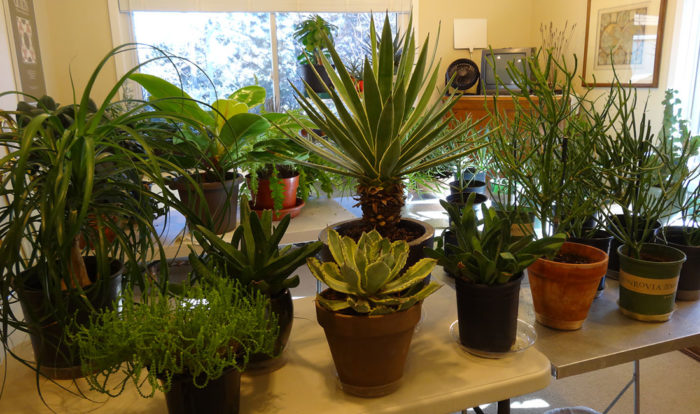
Now that it’s December, temperatures all over the country are starting to quickly fall below the freezing mark, even here in the Southwest. Now is the time when the daytime temps have cooled off enough so that we can get back out in the garden to pull some of the more delicate succulents and cacti indoors for the winter. If you’re anything like us, you have shelves full of empty pots just waiting to be used. Some years the winters aren’t too bad here in Tucson, but 2018 was a doozy, and we lost a lot of mature succulents to the freak snowstorms we received. So this year we’ll be extra cautious with our overwintering and make sure we have more than enough frost cloth on hand for the larger succulents that we can’t overwinter indoors. If you do have any larger containers to bring indoors that aren’t easily lifted, invest in a pot lifter. It requires two people to use, but it makes lifting awkward and heavy pots manageable. You can thank us later.
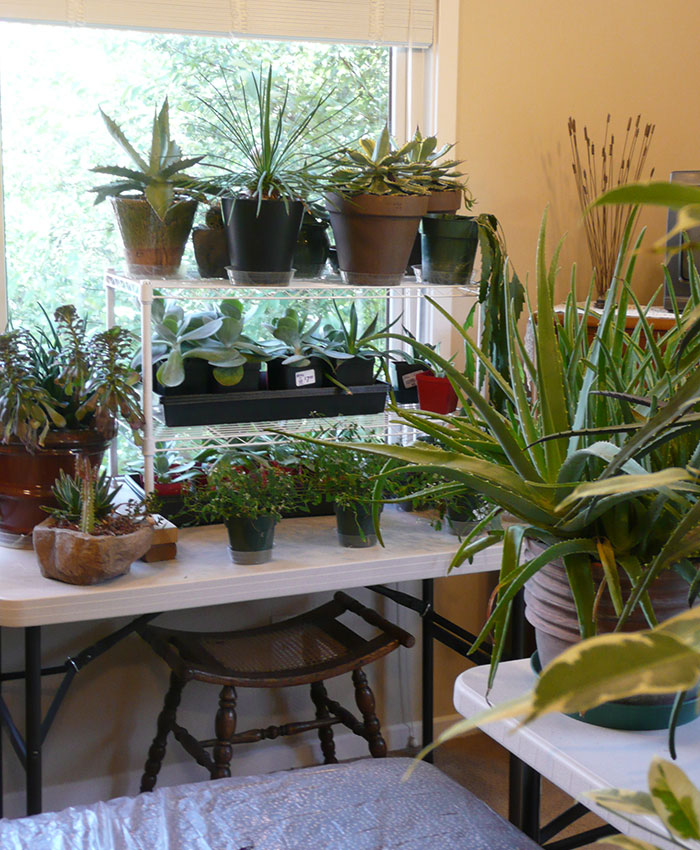
When it comes to overwintering your succulents, it’s extremely important to make sure you have a space in your home that will provide these plants with a lot of light. It’s ideal to use a south-facing window, but east or west will do. If you have more plants than window space, you can always resort to artificial light to help keep those succulents happy over the winter months. The prospect of using artificial light can be a bit overwhelming, but there are a few guidelines that we follow. In theory, if you use a bulb with 2,000 lumens and have it turned on for at least 12 hours a day, you’re giving the plant the same exposure it receives outdoors during the warmer months. You also want to think about the brightness of the light. This is measured by Kelvins. Ideally you want your light to be in the 5,000 Kelvins range to mimic sunlight.
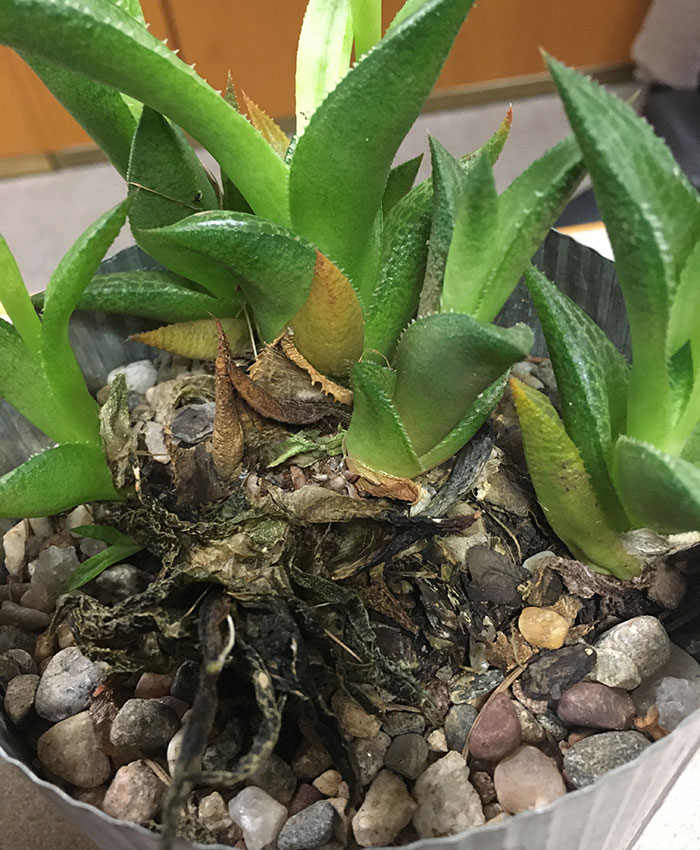
Beyond sunlight and/or artificial light, you also need to be careful not to overwater during the cooler months. We water every three weeks over the winter and sometimes even less frequently depending on how the plants are doing. Be sure to keep the rosettes and petals dry, and direct the water only to the soil. Leaving water on the leaves can cause them to rot quickly in the cooler months. Additionally, overwatering the soil will quickly lead to root rot, so better to keep them as dry as possible.
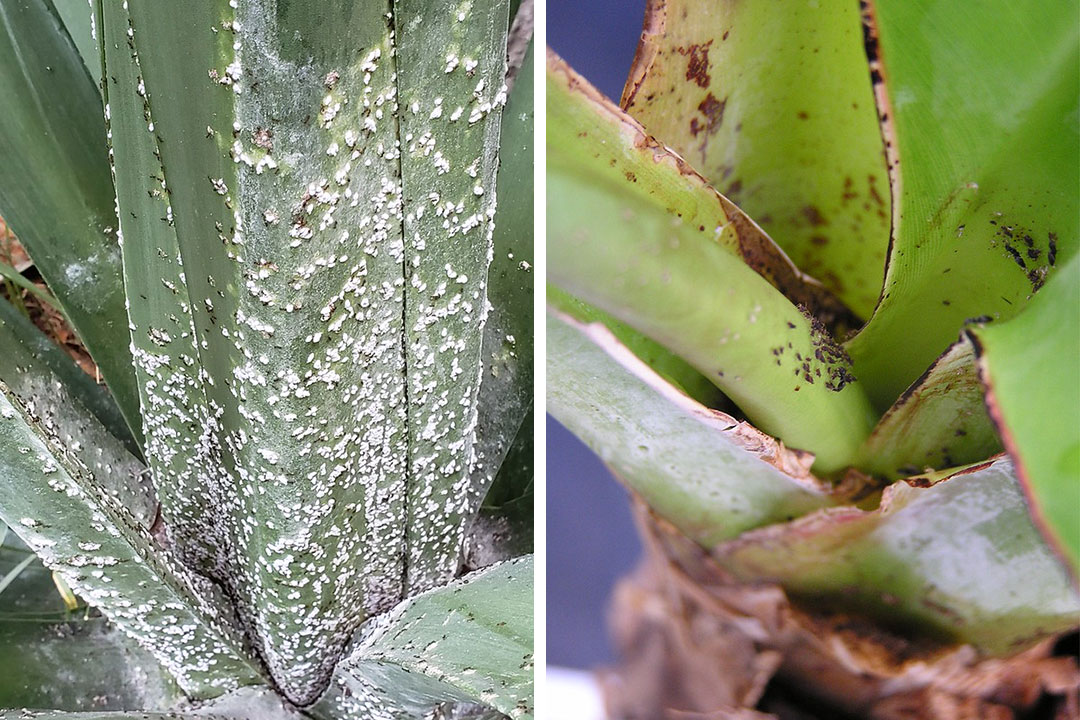
Another common mistake is to fertilize your succulents over the winter. They don’t need it. We’re not trying to encourage them to grow right now; we just want them to stay alive and happy. One last thing to remember is to keep a close eye out for pests. Mealybugs and aphids are quick to take over during winter, so be sure to look under leaves frequently. If you do end up with pests, the first thing to do is move the infected plants away from the others. Next, grab a handy spray bottle with a mixture of three parts rubbing alcohol and one part water. Spray the plants with the mixture to kill the pests. It may take more than one go to clear up the infestation. We always like to continue to leave that plant quarantined until we’re sure the aphids or mealybugs are gone for good. If you prefer to swing by your local garden supply store, you can also find products made especially for these pest issues.
Overwintering doesn’t have to be stressful; just take it day by day and plant by plant. Keep an eye on the amount of light the plants are getting, and adjust or increase as necessary with artificial light. Keep track of your watering schedule to ensure they’re not getting too much water, and as always, be aware of any little pests that might be sneaking in. Good luck with your overwintering, gardeners!
Sheila Schultz and Laurel Startzel are a mother-daughter duo who founded Denver Dirty Girls Container Gardening while living in Denver, Colorado and have continued their business since moving to Tucson, Arizona.


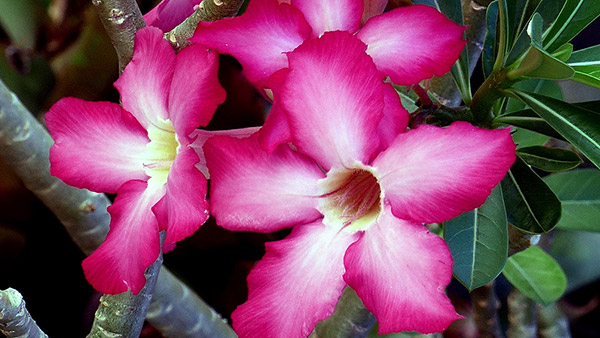
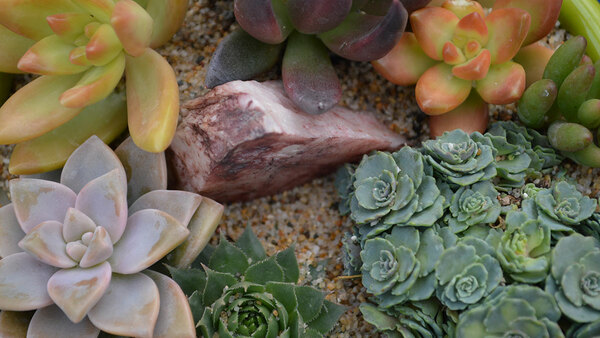
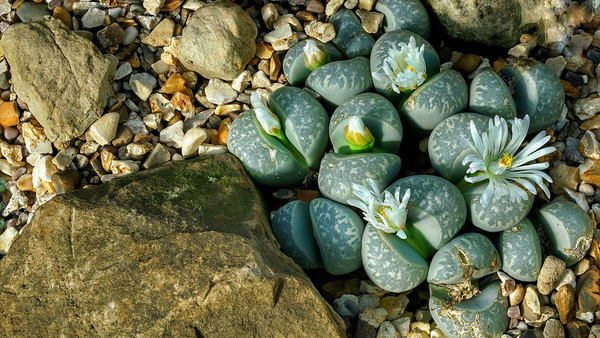


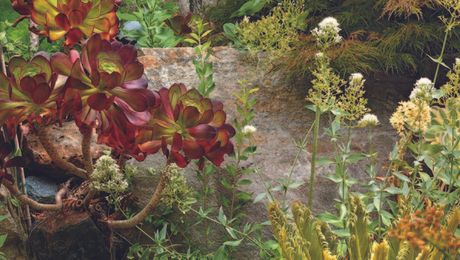










Comments
Log in or create an account to post a comment.
Sign up Log in